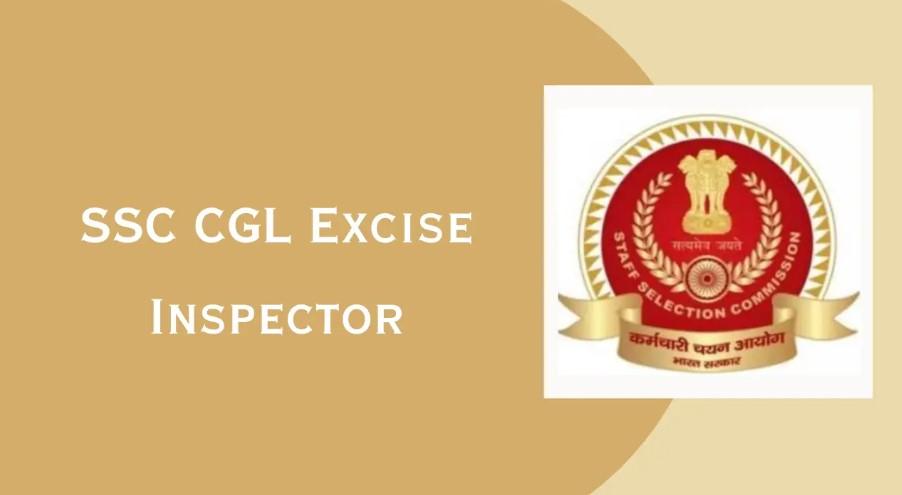
TDS liability @20% – payment to non-residents not having PAN – Provisions of section 206AA applicability – Levy of 20% in the case of outward remittances in the hands of the payer ‘the deductor’ – applicability to assessee that are non-residents of India – Held that:- Having regard to the position of law explained in Azadi Bachao Andolan (2003 (10) TMI 5 – SUPREME Court) and later followed in numerous decisions that a Double Taxation Avoidance Agreement acquires primacy in such cases, where reciprocating states mutually agree upon acceptable principles for tax treatment, the provision in Section 206AA (as it existed) has to be read down to mean that where the deductee i.e the overseas resident business concern conducts its operation from a territory, whose Government has entered into a Double Taxation Avoidance Agreement with India, the rate of taxation would be as dictated by the provisions of the treaty.
India And ORS.
/ Order
Sujit Ghosh, Ms. Kanupriya Bhargava and Ms. Mannat Waraich, Advs.
Mr. Prasanta Verma, SCGC with Ms.Shalu Goswami, Adv. for UOI/R1. Mr. Ruchir
Bhatia, Sr. Standing Counsel and Mr. Puneet Rai, Jr. Standing Counsel for
Income Tax Deptt. And Mr. C. Mukund, Ms.Geetika Matta and Mohd. Farib Ahmed,
Advs.
RAVINDRA BHAT (ORAL)
the Income Tax Act (‘the Act’) (introduced by Finance Bill No. 2 of 2009) that
directs a levy of 20% in the case of outward remittances in the hands of the
payer (hereafter referred to as ‘the deductor’ ) and is applicable to assessees
that are non-residents of India. Section 206AA to the extent it is relevant,
reads as follows :
in any other provisions of this Act, any person entitled to receive any sum or
income or amount, on which tax is deductible under Chapter XVIIB (hereafter
referred to as deductee) shall furnish his Permanent Account Number to the
person responsible for deducting such tax (hereafter referred to as deductor),
failing which tax shall be deducted at the higher of the following rates,
namely:-
provision of this Act; or
provision cannot be sustained having regard to the peculiar facts of this case.
The petitioner is an Indian assessee, who, in the normal course of its business
remits payments to M/s DuPont Singapore, a non-resident company, located in
Singapore. DuPont is not a tax assessee in India. Tax relationship between the
two countries is regulated in terms of Indo-Singapore Double Taxation Avoidance
Agreement (DTAA). The relevant provisions of DTAA mandates a cap of 10% upon
the recovery of amounts, in respect of tax incidence that occurs in the
concerned host country (Article 12). Article 12 of the DTAA reads, as follows :
arising in a Contracting State and paid to a resident of the other Contracting
State may be taxed in that other State.
technical services may also be taxed in the Contracting State in which they
arise and according to the laws of that Contracting State,” but if the
recipient is the beneficial owner of the royalties or fees for technical
services, the tax so charged shall not exceed 10 per cent.]
this Article means payments of any kind received as a consideration for the use
of, or the right to use:
scientific work, including cinematograph film or films or tapes used for radio
or television broadcasting, any patent, trade mark, design or model, plan,
secret formula or process, or for information concerning industrial, commercial
or scientific experience, including gains derived from the alienation of any
such right, property or information ;
equipment, other than payments derived by an enterprise from activities
described in paragraph 4(6) or 4(c) of Article 8.
services” as used in this Article means payments of any kind to any person
in consideration for services of a managerial, technical or consultancy nature
(including the provision of such services through technical or other personnel)
if such services :
application or enjoyment of the right, property or information for which a
payment described in paragraph 3 is received ; or
experience, skill, know-how or processes, which enables the person acquiring
the services to apply the technology contained therein; or
technical plan or technical design, but excludes’ any service that does not
enable the person acquiring the, service to apply the technology contained
therein.
person acquiring the service shall be deemed to include an agent, nominee, or
transferee of such person.
technical services” does not include payments :
subsidiary, as well as inextricably and essentially linked, to the sale of
property other than a sale described in paragraph3(a);
subsidiary to the rental of ships, aircraft, containers or other equipment used
in connection with the operation of ships or aircraft in international traffic
;
institutions ;
individual or individuals making the payment;
payments or to any individual or firm of individuals (other than a company) for
professional services as defined in Article 14;
installation or structure used for the exploration, or exploitation of natural
resources referred to in paragraph 2(/) ofArticle5 ;
5 of Article 5.
not apply if the beneficial owner of the royalties or fees for technical
services, being a resident of a Contracting State, carries on business in the
other Contracting State in which the royalties or fees for technical services
arise, through a permanent establishment situated therein, or performs in that
other State independent personal services from a fixed base situated therein,
and the right, property or contract in respect of which the royalties or fees
for technical services are paid is effectively connected with such permanent
establishment or fixed base. In such case, the provisions of Article 7 or Article
14, as the case may be, shall apply.
shall be deemed to arise in a Contracting State when the payer is that State
itself, a Political sub-division, a local authority, a statutory body or a
resident of that State. Where, however, the person paying the royalties or fees
for technical services, whether he is a resident of a Contracting State or not,
has in a Contracting State a permanent establishment or a fixed base in
connection with which the liability to pay the royalties or fees for technical
services was incurred, and such royalties or fees for technical services are
borne by such permanent establishment or fixed base, then such royalties or
fees for technical services shall be deemed to arise in the State in which the
permanent establishment or fixed base is situated.
between the payer and the beneficial owner or between both of them and some
other person, the amount of royalties or fees for technical services paid
exceeds the amount which would have been paid in the absence of such
relationship, the provisions of this Article shall apply only to the
last-mentioned amount. In such case, the excess part of the payments shall
remain taxable according to the laws of each Contracting State, due regard
being had to the other provisions of this Agreement.
disputed, are covered by the expression ‘fees for technical services’. Thus, on
an application of the principle of law enunciated in Azadi Bachao Andolan Vs.
Union of India, (2003) 263 ITR 706 (SC), even if the tax rate for the activity
which would form part of the expression ‘fees for technical services’ is
higher, not more than 10% can be recovered by the Indian Tax Authorities. The
petitioner contends that Section 206AA (i) has the effect of undoing the
provisions of DTAA, besides being in violation of Article 265 of Constitution
of India. The petitioner in support of its contention that the levy of 20% rate
is unconstitutional relies upon the recommendations of Justice Easwar’s
Committee’s report of 2016 made to the Central Government. Upon a review of
existing tax laws, Justice Easwar’s Committee made the following specific
recommendations:
tax is required to be deducted by the deductor at a higher rate as prescribed
under the said section, where the deductee does not furnish his Permanent
Account Number (PAN). This section was introduced with the objective that the
furnishing of PAN was important with a view to trail the taxability of the
payments in the hands of a non-resident. As regards non-residents, the
Committee noted that in view of the specific provisions of Section 115A and the
provisions under the respective Double Tax Avoidance Agreements (DTAAs)
prescribing specific rates for tax deduction at source u/s. 195, there was no
justification for providing deduction of tax at a higher rate than as
prescribed under Section 115A or under the respective DTAA. In fact, this provision
has proved to be an impediment in terms of ease of business, as many
non-residents prefer not to do business with Indian residents, if obtaining of
PAN is insisted from them. The Committee was of the view that it should suffice
if the concerned non-resident furnished to the deductor, in lieu of such
Permanent Account Number, his tax identification number in the country or the
specified territory of residence and in case there is no such number, then, a
unique number on the basis of which the person is identified by the Government
of the country or the specified territory of which such person claims to be a
resident.
recommendations, the Central Government moved an amendment, which Parliament
effected through Finance Act of 2016, that, in effect, neutralized the existing
provision by substituting Sub-section (7). The newly added Sub-section 206AA(7)
w.e.f. 1.6.2016 reads as follows :
apply to a non-resident, not being a company, or to a foreign company, in
respect of –
referred to in section 194LC; and
conditions as may be prescribed.”
with the passage of the amendment, the effect, if any, of pre-existing
provision has been neutralized. Learned counsel also points out Rule 37BC of
the Income Tax Rules introduced after the amendment does away with the
mandatory requirement of the overseas company intending to possess an Indian
PAN and instead demands a specific identification number or code as provided.
It is also pointed out that Section 206AA was interpreted by a Bench of the
Income Tax Tribunal in Dy. Director of Income Tax Vs. Serum Institute of India
Ltd. (ITA 792/PN/2013, decided on 30.3.2015)
is quite apparent that the issue urged has been rendered largely academic on
account of corrective amendment made by the Parliament-which substituted
pre-existing Sub-section (7) with the present Section 206AA (7). The amendment
is mitigating to a large extent, the rigors of the pre- existing laws. The law,
as it existed, went beyond the provisions of DTAA which in most cases mandates
a 10% cap on the rate of tax applicable to the state parties. Section 206AA
(prior to its amendment) resulted in a situation, where, over and above the
mandated 10%, a recovery of an additional 10%, in the event, the non- resident
payee, did not possess PAN.
of India (Supra) discussed this very issue in some detail and stated, as
follows:
the absence of furnishing of PAN, assessee was under an obligation to deduct
tax @ 20% following the provisions of section 206AA of the Act. However,
assessee had deducted the tax at source at the rates prescribed in the
respective DTAAs between India and the relevant country of the non-residents;
and, such rate of tax being lower than the rate of 20% mandated by section
206AA of the Act. The CIT(A) has found that the provisions of section 90(2)
come to the rescue of the assessee. Section 90(2) provides that the provisions
of the DTAAs would override the provisions of the domestic Act in cases where
the provisions of DTAAs are more beneficial to the assessee. There cannot be
any doubt to the proposition that in case of non-residents, tax liability in
India is liable to be determined in accordance with the provisions of the Act
or the DTAA between India and the relevant country, whichever is more
beneficial to the assessee, having regard to the provisions of section 90(2) of
the Act. In this context, the CIT(A) has correctly observed that the Hon’ble
Supreme Court in the case of Azadi Bachao Andolan and Others v. UOI,
MANU/SC/1219/2003 : (2003) 263 ITR 706 (SC) has upheld the proposition that the
provisions made in the DTAAs will prevail over the general provisions contained
in the Act to the extent they are beneficial to the assessee. In this context,
it would be worthwhile to observe that the DTAAs entered into between India and
the other relevant countries in the present context provide for scope of
taxation and/or a rate of taxation which was different from the scope/rate
prescribed under the Act. For the said reason, assessee deducted the tax at
source having regard to the provisions of the respective DTAAs which provided
for a beneficial rate of taxation. It would also be relevant to observe that
even the charging section 4 as well as section 5 of the Act which deals with
the principle of ascertainment of total income under the Act are also
subordinate to the principle enshrined in section 90(2) as held by the Hon’ble
Supreme Court in the case of Azadi Bachao Andolan and Others (supra). Thus, in
so far as the applicability of the scope/rate of taxation with respect to the
impugned payments make to the non-residents is concerned, no fault can be found
with the rate of taxation invoked by the assessee based on the DTAAs, which
prescribed for a beneficial rate of taxation. However, the case of the Revenue
is that the tax deduction at source was required to be made at 20% in the
absence of furnishing of PAN by the recipient non-residents, having regard to
section 206AA of the Act. In our considered opinion, it would be quite
incorrect to say that though the charging section 4 of the Act and section 5 of
the Act dealing with ascertainment of total income are subordinate to the
principle enshrined in section 90(2) of the Act but the provisions of Chapter
XVII-B governing tax deduction at source are not subordinate to section 90(2)
of the Act. Notably, section 206AA of the Act which is the centre of
controversy before us is not a charging section but is a part of a procedural
provisions dealing with collection and deduction of tax at source. The
provisions of section 195 of the Act which casts a duty on the assessee to
deduct tax at source on payments to a non-resident cannot be looked upon as a
charging provision. In-fact, in the context of section 195 of the Act also, the
Hon’ble Supreme Court in the case of CIT v. Eli Lily & Co.,
MANU/SC/0487/2009 : (2009) 312 ITR 225 (SC) observed that the provisions of tax
withholding i.e. section 195 of the Act would apply only to sums which are
otherwise chargeable to tax under the Act. The Hon’ble Supreme Court in the
case of GE India Technology Centre Pvt. Ltd. v. CIT, MANU/SC/0688/2010 : (2010)
327 ITR 456 (SC) held that the provisions of DTAAs along with the sections 4,
5, 9, 90 & 91 of the Act are relevant while applying the provisions of tax
deduction at source. Therefore, in view of the aforesaid schematic
interpretation of the Act, section 206AA of the Act cannot be understood to
override the charging sections 4 and 5 of the Act. Thus, where section 90(2) of
the Act provides that DTAAs override domestic law in cases where the provisions
of DTAAs are more beneficial to the assessee and the same also overrides the
charging sections 4 and 5 of the Act which, in turn, override the DTAAs
provisions especially section 206AA of the Act which is the controversy before
us. Therefore, in our view, where the tax has been deducted on the strength of
the beneficial provisions of section DTAAs, the provisions of section 206AA of
the Act cannot be invoked by the Assessing Officer to insist on the tax
deduction @ 20%, having regard to the overriding nature of the provisions of
section 90(2) of the Act. The CIT(A), in our view, correctly inferred that
section 206AA of the Act does not override the provisions of section 90(2) of the
Act and that in the impugned cases of payments made to non-residents, assessee
correctly applied the rate of tax prescribed under the DTAAs and not as per
section 206AA of the Act because the provisions of the DTAAs was more
beneficial. Thus, we hereby affirm the ultimate conclusion of the CIT(A) in
deleting the tax demand relatable to difference between 20% and the actual tax
rate on which tax was deducted by the assessee in terms of the relevant DTAAs.
As a consequence, Revenue fails in its appeals.
explained in Azadi Bachao Andolan (supra) and later followed in numerous
decisions that a Double Taxation Avoidance Agreement acquires primacy in such
cases, where reciprocating states mutually agree upon acceptable principles for
tax treatment, the provision in Section 206AA (as it existed) has to be read
down to mean that where the deductee i.e the overseas resident business concern
conducts its operation from a territory, whose Government has entered into a
Double Taxation Avoidance Agreement with India, the rate of taxation would be
as dictated by the provisions of the treaty.
partly allowed in the above terms.
GE India Technology Centre Private Ltd. Versus Commissioner of
Income Tax & Anr. – 2010 (9) TMI 7 – SUPREME COURT OF INDIA
Commissioner of Income-tax, New Delhi Versus Eli Lilly &
Company (India) Pvt. Ltd. – 2009 (3) TMI 33 – SUPREME COURT
Union of India And Another Versus Azadi Bachao Andolan And Another
– 2003 (10) TMI 5 – SUPREME Court
Dy. Director of Income Tax (IT-II) , Pune. Versus Serum Institute
of India Limited – 2015 (6) TMI 26 – ITAT PUNE













